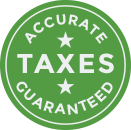What is Social Security Allowance
Crafting compensation packages for church pastors is a process distinctly different from setting salaries and benefits in the for-profit sector. What is Social Security Allowance? A Social Security allowance is an additional payment made by churches to clergy to help cover their Social Security tax burden. This allowance is often referred to as a SECA…
History of dual status for clergy
History and development of dual status for clergy members: Early 20th Century Pre-1954: Initially, clergy were generally treated as employees of their religious institutions. However, this treatment didn’t fully address the unique nature of their ministerial income and work arrangements. Introduction of SECA (1954) 1954: The Self-Employment Contributions Act (SECA) was introduced, making it mandatory…
Why are clergy subject to Self-employment tax
Clergy are subject to self-employment tax because their earnings from ministerial services are considered self-employment income under the Self-Employment Contributions Act (SECA). This classification is based on several key provisions and interpretations of the Internal Revenue Code and related regulations. Definition of Net Earnings from Self-Employment: According to § 1402(a) of the Internal Revenue Code, “net earnings…
Self-Employment Tax and the Minister (3-part series)
July 2024 Self-Employment Tax and the Minister (3-part series) Part 1: What is Self-Employment Tax? If I am a minister/clergy, do I have to pay self-employment taxes? This is a very important question, and perhaps a question you have asked yourself. Whether you are a seasoned minister, or just beginning, understanding self-employment taxes is vital…
Should I have a Social Security Allowance?
Should I have a Social Security Allowance? While ministers are employees for federal income tax reporting purposes, they are self-employed for Social Security purposes with respect to services they perform in the exercise of their ministry. This means that they must pay both the employee and the employer share of social security tax under the…
Are Clergy Subject to Self-employment tax
Clergy are dual-status employees and are not eligible to have FICA taxes withheld from their church compensation. In lieu of FICA taxes, clergy are subject to self-employment tax (SECA) which is calculated and paid on their tax return. Reimbursements from an employer of SECA are taxable as wages. Note, however, that even though clergy pay SECA…
Are ministers employees or self-employed?
The answer is “both.” Ministers have what is commonly referred to as “dual tax status.” For federal income tax purposes, a minister is generally treated as a common-law employee. For payments into Social Security, the minister is always self-employed. This is an IRS regulation and not an election. When a church hires an employee, one…
What is a Social Security Allowance?
If you are a member of the Clergy, you may have seen the phrase “Social Security Allowance” on your W-2 or it might be a part of your compensation package. But what does that mean exactly? To understand, we have to explain a difference between Clergy and Non-Clergy employees. Non-clergy employees have Social Security and…
Church-Owned Parsonages- Don’t Forget the Fair Rental Value and Utilities!
Members of the Clergy who live in church-owned parsonages get to exclude the fair rental value of their home and utilities paid by the church from their income when calculating income tax. However, they must add these amounts back into income when calculating self-employment taxes. This can come as a surprise to those who have…
Clergy can still deduct unreimbursed business expenses
It used to be that if you paid for business expenses out of your own pocket, you could deduct them on Schedule A. When the Tax Cuts and Jobs Act passed, it eliminated the ability to deduct unreimbursed business expenses on Schedule A for all taxpayers… Fortunately, there is still another way to deduct some…






